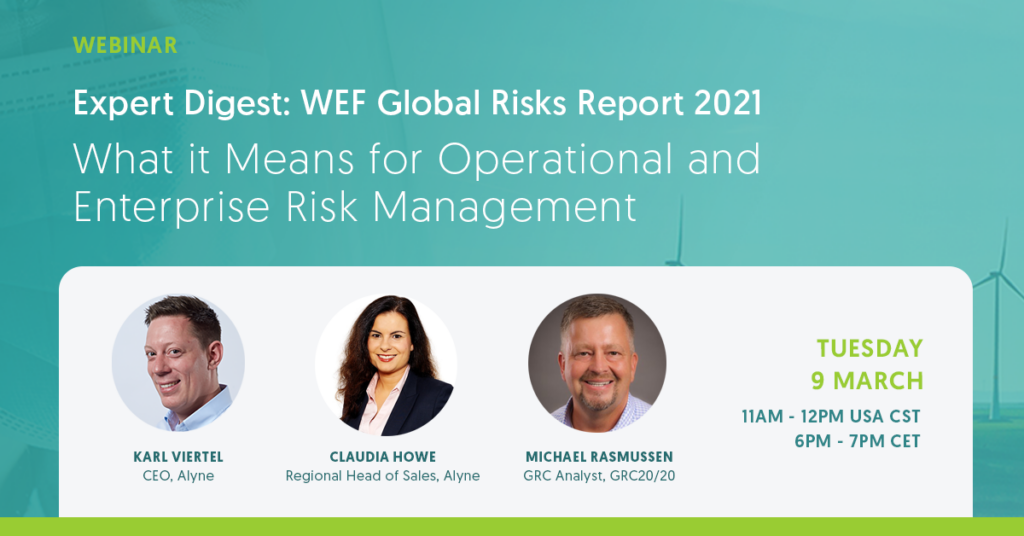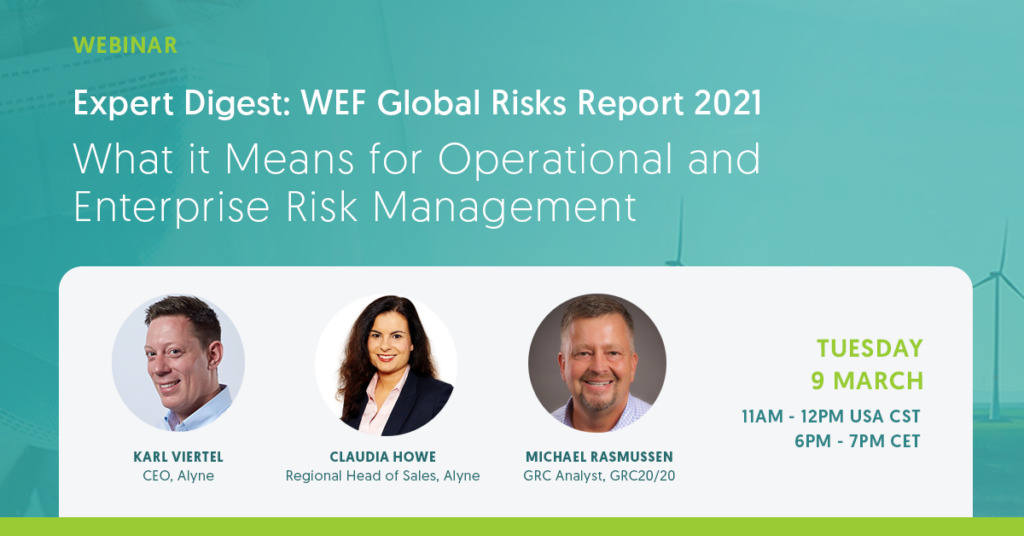An Expert Look & Analysis at the WEF Global Risks Report 2021

Operational Risk Management (ORM) and Enterprise Risk Management (ERM) are often not as straightforward as we hope they would be. Risks that may be perceived as isolated, actually have a domino effect where one leads to the other. Simply put, risks and adversity events have a complex intertwined relationship that is constantly evolving and transforming. Hence, it is impossible for decision-makers to view risks in silos as the lack of information can potentially lead to critical insights being left out during a key risk assessment, consequently harming the continuity and resiliency of the organisation. According to the World Economic Forum Global Risks Report 2021 , many looming knock-on environmental, social and corporate governance (ESG) risks can be extremely significant in terms of likelihood and impact.
The repercussions of COVID-19 in our society have violently enlarged existing disparities and emphasised critical issues within organisations, as businesses in different industries are bound to face disproportionate impacts and costs that come along with it. While the recovery of various economies is well underway, in reality, vulnerabilities are often harshly felt in disadvantaged communities. It is critical to include these already vulnerable communities deeply affected by the pandemic in order to ensure effective, progressive and holistic global recovery.
At the end of the day, nobody is truly able to see the future. We can, however, try to accurately predict it and prepare for what it might bring. It is imperative that business leaders ensure that their operational and enterprise risk management capabilities cover human rights, corporate social responsibility and environmental sustainability – topics that are becoming increasingly promoted, mandated and regulated globally. The future of risk management should be one with distinctive frameworks, control systems and continuous monitoring to prevent business-related impacts on ESG factors.
Operational resiliency is a primary focus point for firms globally, with the topic becoming a key regulatory requirement in some industries. Organisations need to adopt a holistic approach – one that integrates risk management and business continuity – and can provide them with full situational awareness of the complex and interconnected risk environment and the impact these events can have on their organisation.
When it comes to your organisation’s Enterprise Risk Management (ERM) and Operational Risk Management (ORM), are you fully prepared for the next event, or is your future contingency plan for global risks based solely on your response to COVID-19? In order to prepare for future risks, are you still relying on the ERM and ORM strategies that were implemented before the pandemic? Have you considered potential ESG risks? In this webinar, learn how you can transform your ERM and ORM strategies to enhance your organisation’s capabilities, gain better visibility and control your outcome beyond crises and towards long-term sustainability and resiliency.
Join Alyne’s experts Karl Viertel (CEO), Claudia Howe (Regional Head of Sales DACH & UK) and GRC Analyst Michael Rasmussen this upcoming Tuesday 9 March, 2021 in this new interactive webinar as they take an expert look at the WEF Global Risks Report 2021 and analyse innovative, forward-thinking, long-term ways to align your organisation towards your business goals.
